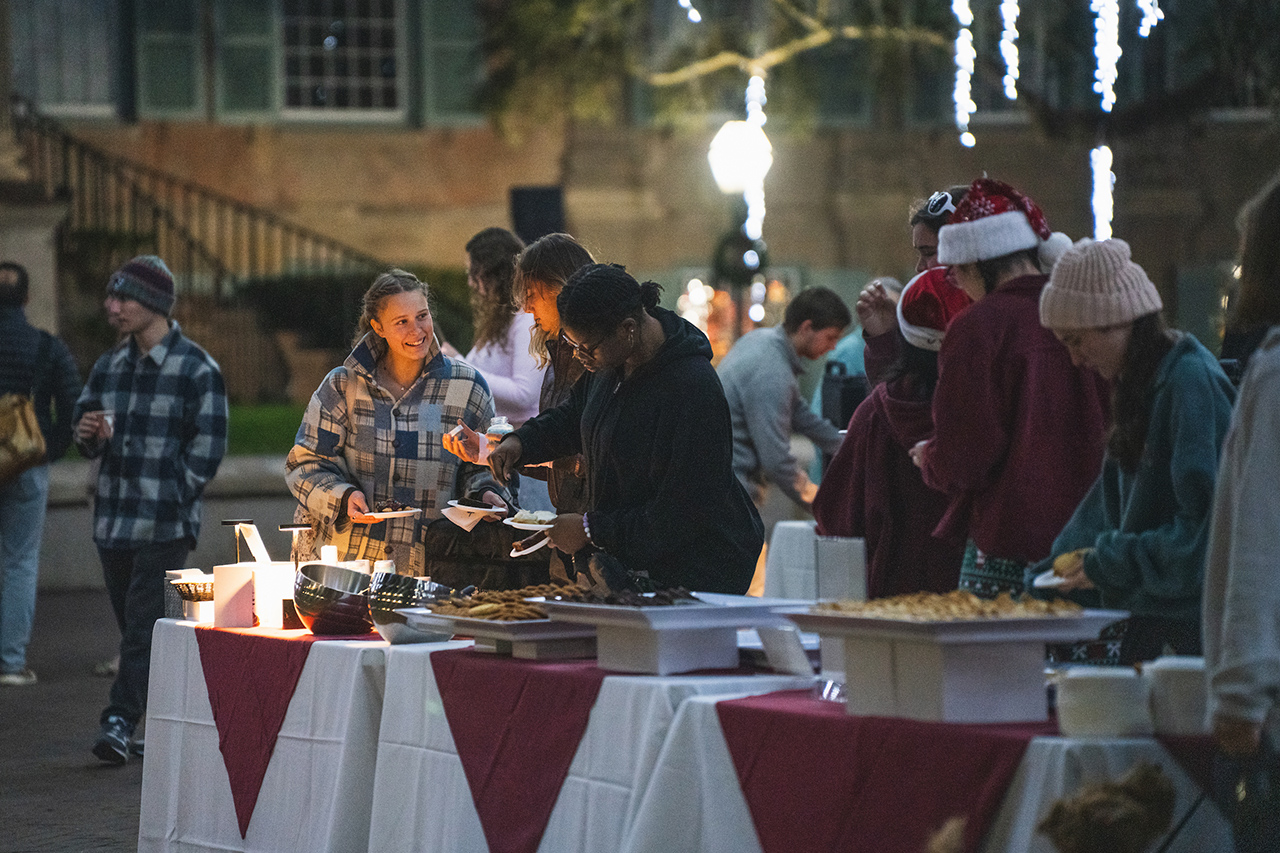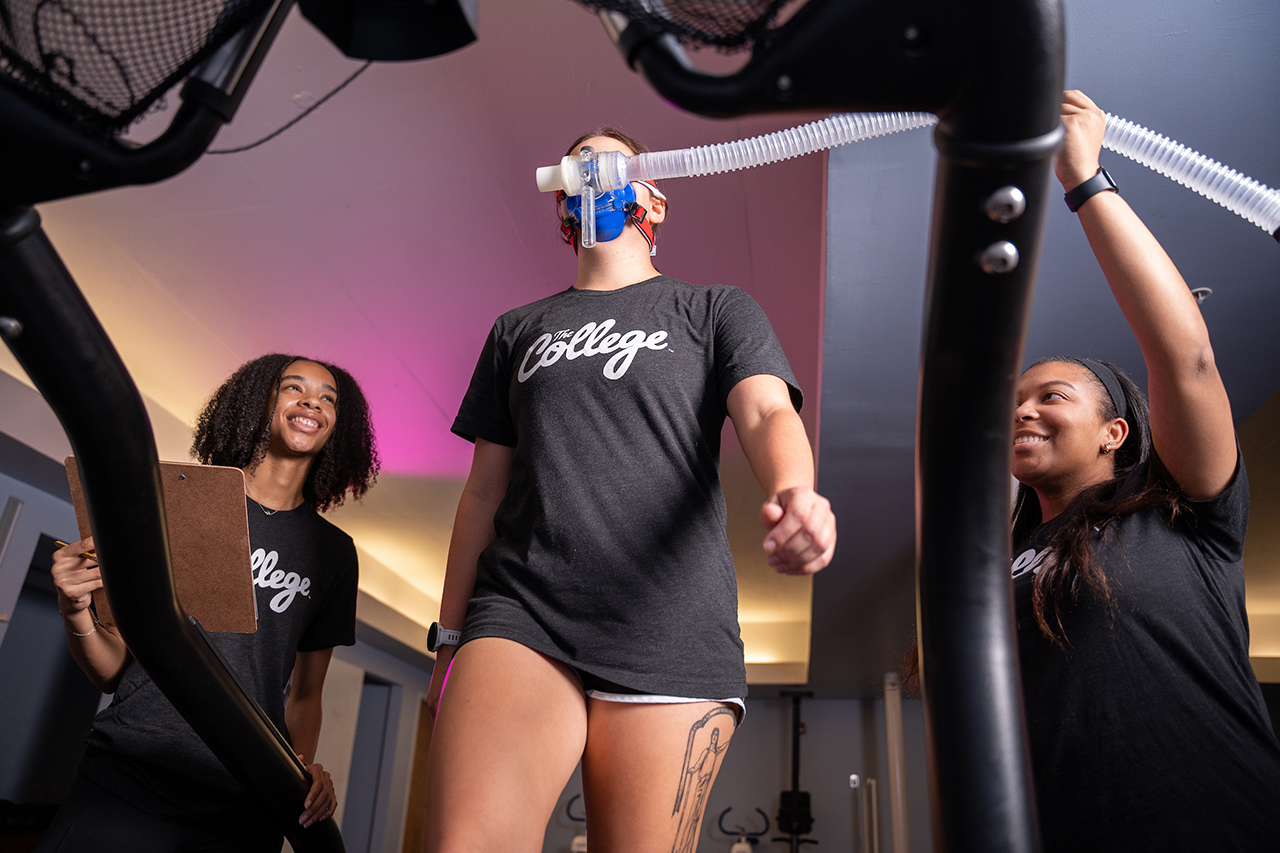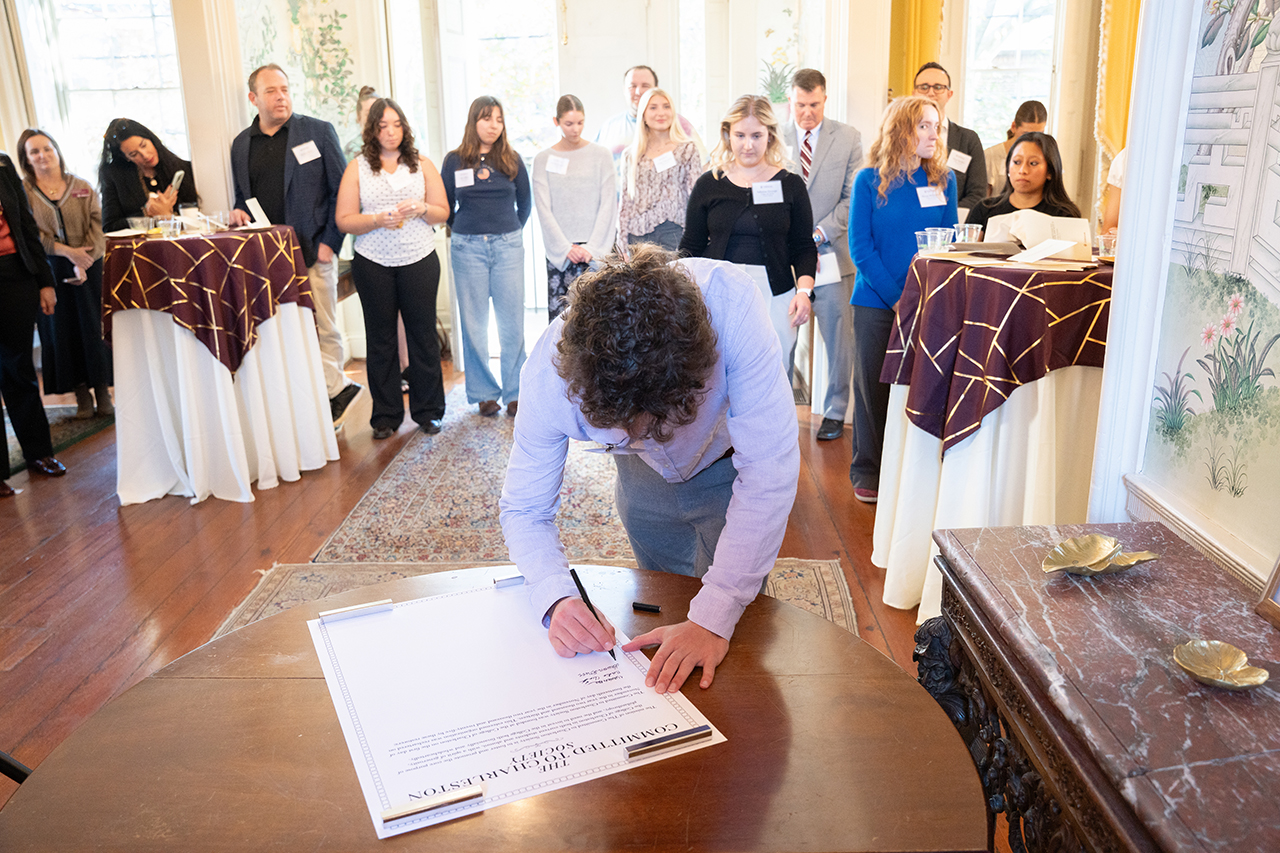CofC Student Publishes Book on His Lowcountry Family History
The results of Darius Brown's DNA test prompted a journey that resulted in the professional studies student's new book.
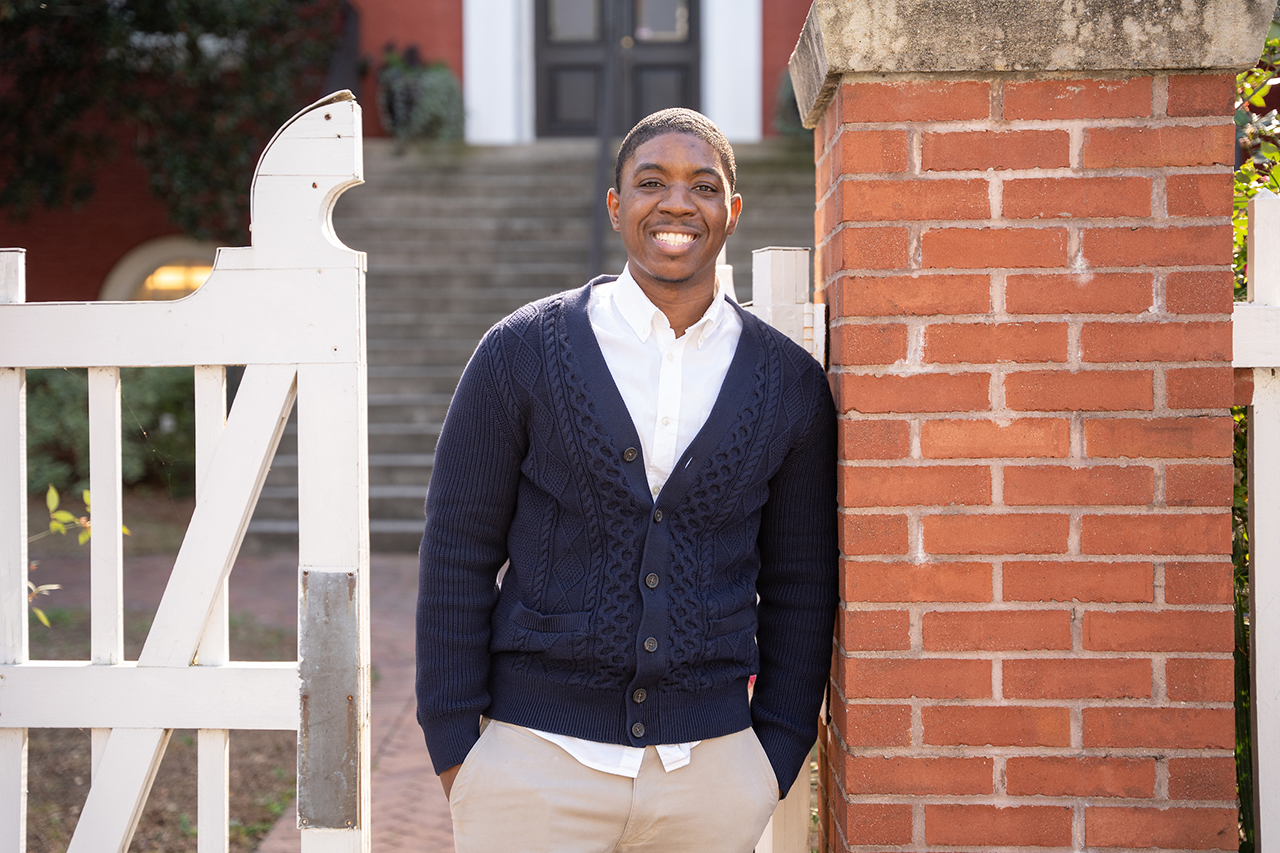
When Darius Brown got his DNA test results that stated he was 96% African, he thought it was a fluke.
According to research, the typical African American has a genetic makeup of approximately 80-85% African ancestry, and those numbers could vary depending where in the U.S. their family stems from. Brown’s high percentage blew him away. Unsure of the result’s accuracy, he took another test. It came back 97% African. He ended up taking a third test. This one revealed 98% African. More convinced than ever, he began a deep dive into his ancestry.
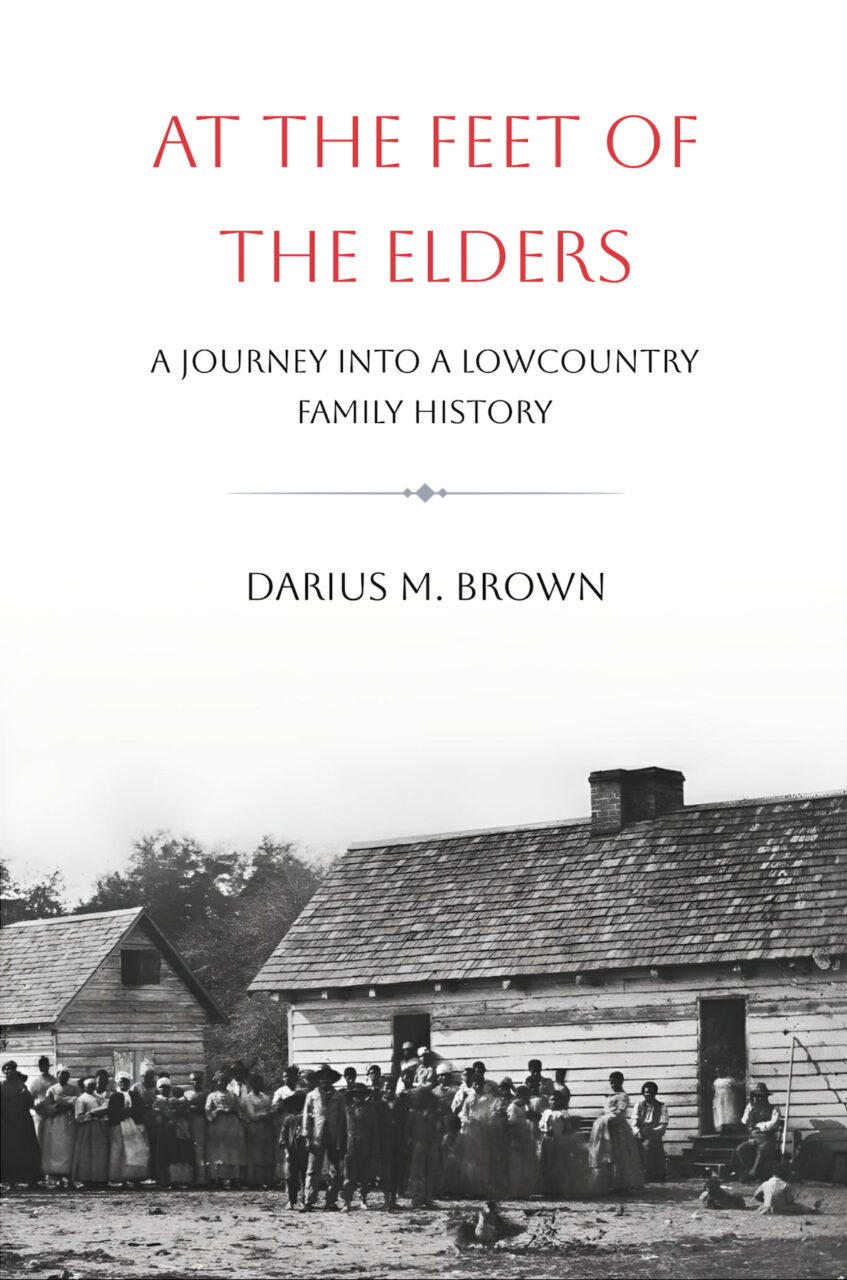
Seven years and nearly 11,000 relatives on his family tree later, he has recently published his family’s story in his debut book, At the Feet of the Elders: A Journey Into a Lowcountry Family History. The book exemplifies the importance of preserving stories passed down from generations.
“When I was growing up, I could always remember being around my elders listening to their conversations about family history,” says the College of Charleston student, a native of Beaufort, South Carolina. “The title conveys I was sitting before them and soaking up all the knowledge and oral history they received from their elders.”
Genealogy began as a hobby for Brown, but soon became a career. A few years into researching his family, he started working as a genetic genealogist and research assistant at the International African American Museum (IAAM) in Charleston. In time, he’d uncovered so much about his ancestors that he didn’t want to keep it to himself. So, he decided to write a book.
Working full time, researching and writing became a balancing act for Brown. Despite his packed schedule, he enrolled in the College’s flexible, online Bachelor of Professional Studies program.
“It’s a pretty cool degree,” says Brown, who is concentrating his studies in organizational management and development.
Brown says researching enslaved African Americans is hard, but not impossible: “You have to be the person willing to do the work.”
And he’s done the work. He’s now traced his family back to the colonial period and reconstructed the enslaved populations at the Old Fort, Otaheite, Blue Mud and Blake Plantations. His work has impacted others, too.
“Now [other] people get to benefit,” he says. “Not only was I looking for my family, but I’ve found other people’s ancestors.”
While unearthing his roots, remarkable discoveries confirmed the once unbelievable stories he’d grown up hearing. His ancestor, Fortune, fought in the American Revolutionary War. He also found out his relatives worked with Harriet Tubman to free over 700 enslaved people in Beaufort during the Combahee River Raid.
At the IAAM, Brown leads Genealogy 101 sessions several times a week. When people ask him where to start tracing their lineage, he always tells them to begin with themselves and move back in time. However, he cautions that the process can be slow.
RELATED: Watch Darius Brown talking about his research and his work for the IAAM on PBS News Hour.
“Some people think they can research their family in a couple of days and find all the answers. It’s not like that,” he says. “It takes perseverance.”
It also means staying the course when discovering uncomfortable truths. Brown wants African Americans to become more comfortable knowing their family histories. Seeing your relatives marked as property in estate inventories and bills of sale can be harrowing, but it’s about perception. It shows their strength.
“Don’t be ashamed of what our ancestors went through,” he says. “Embrace it.”

